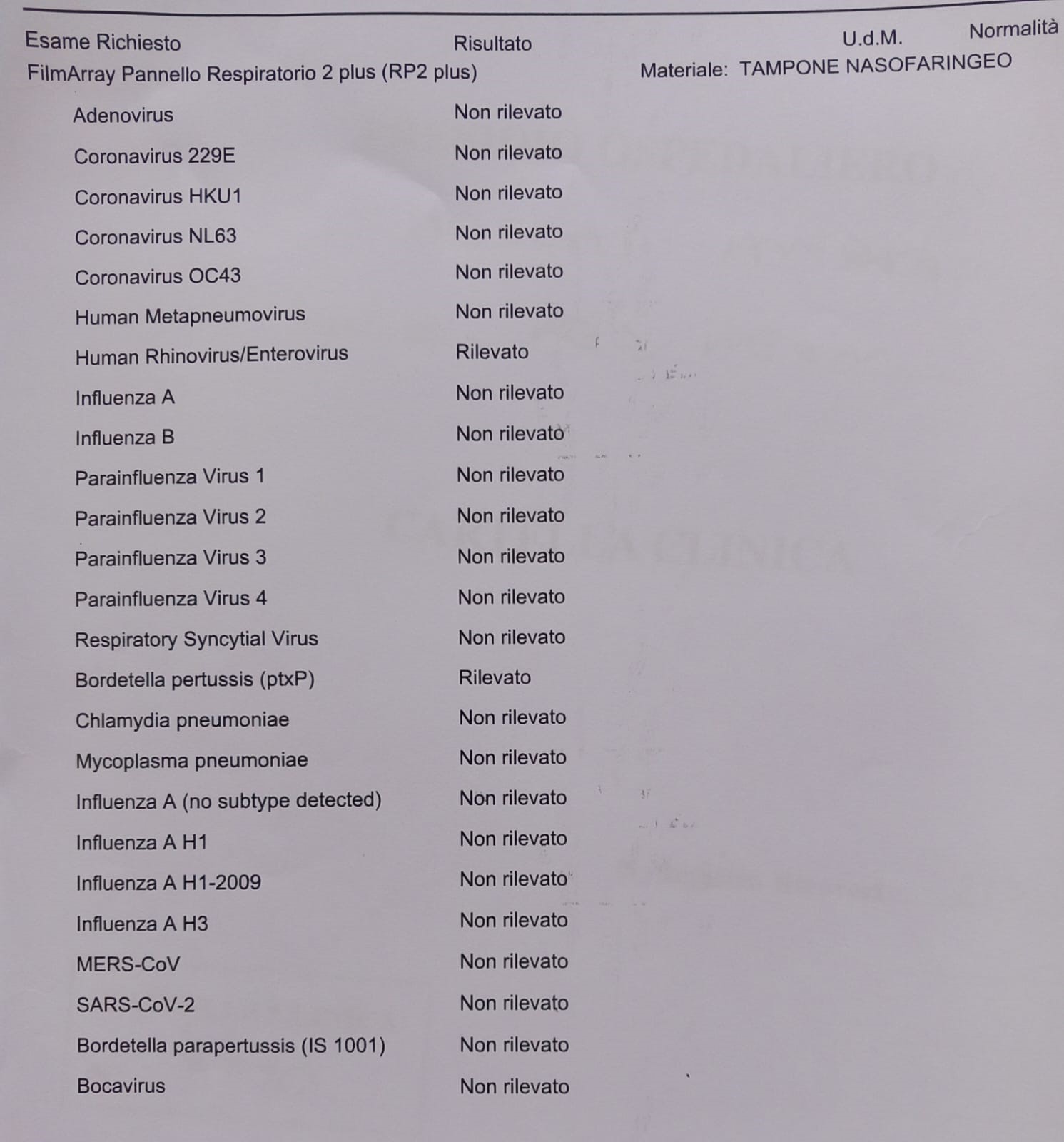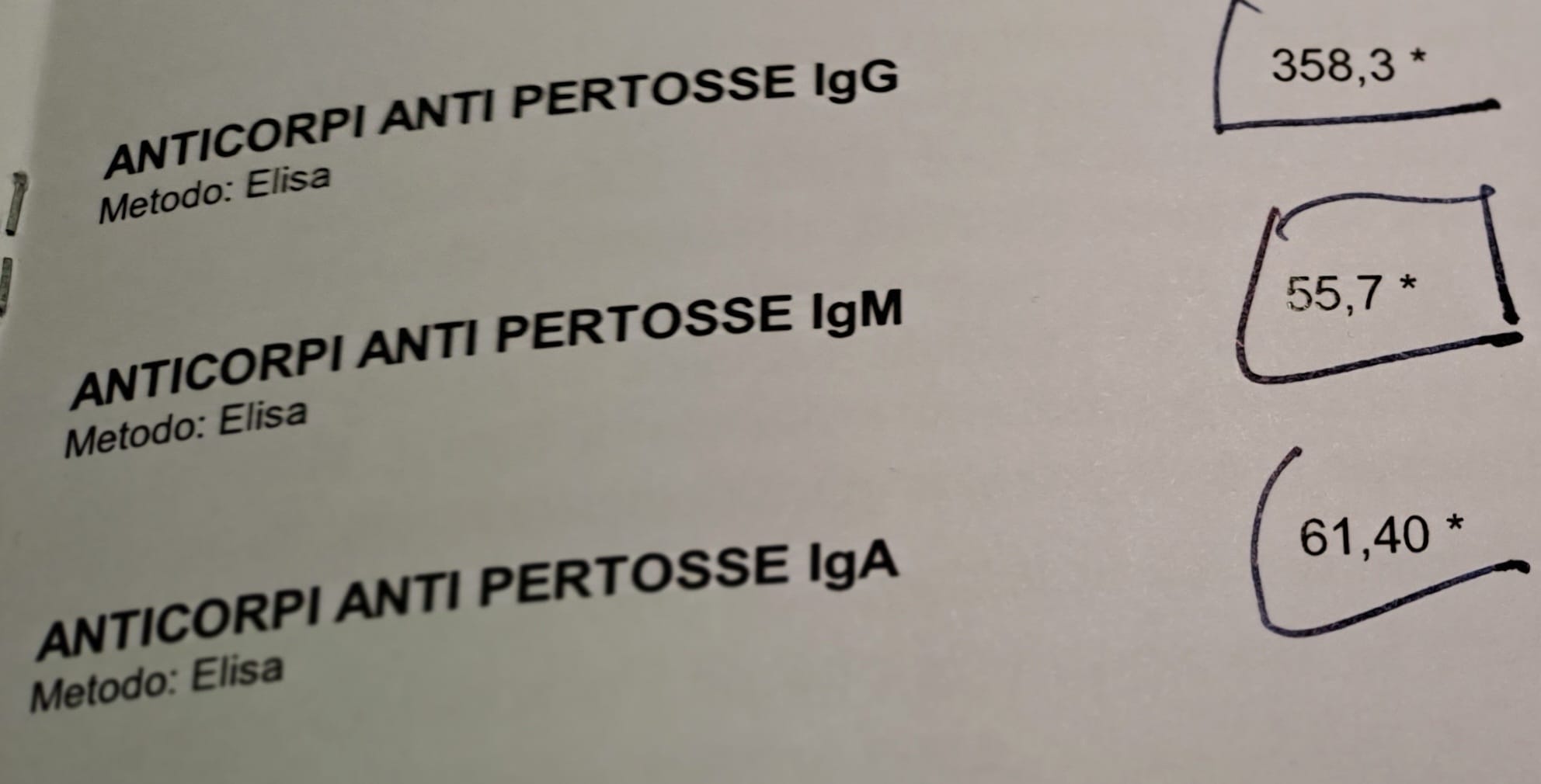Salvatore Vendemmia – Aversa, Ilaria Pezone – Aversa, Domenico Perri – Aversa, Gaetano Bottigliero – Aversa, Cinzia Mautone – Aversa, Maria Vendemmia – Napoli
This disease seemed, like many others, a memory of the past but, for some years, we observe that it recurs periodically, even in subjects regularly vaccinated.
For more than thirty years, a vaccine has been practiced and its protection has seemed quite useful and effective.
After the first three doses, expected in the first year of life, you should have valid protection at least up to five years of age.
The Ministry of Health recommends carrying out vaccine recalls at 5/6 years and 13/14 years.
All this for a more efficient protection of vaccinated and to eliminate or reduce to maximum dangerous circulation of the " Bordetella Pertussis ".
We now know that the vaccine provides protection for 9 out of 10 people in serious forms, one in seven in other forms. Vaccination of women during pregnancy provides infants with a more than 90% protection.
Unfortunately, antibodies produced by a natural infection or vaccination do not guarantee long-lasting protection.
For this reason, it is appropriate to carry out vaccine recalls in preschool age, adolescence and every 10-12 years in adulthood: this could, almost certainly, ensure a life-long protection.
PERIODIC RE-OCCURRENCE OF THE DISEASE ALSO IN VACCINATED
Periodic re-occurrence of whooping cough has been reported for several years, mainly from late winter to summer. Outbreaks of Bordetella Pertussis infections have also been reported in other countries.
What could be the cause of these recurring episodes?
First, we must consider that vaccination does not protect for life and that it is necessary to properly practice the doses of vaccine prescribed by our health system until adolescence. Also recommended to vaccinated and families to practice periodic calls decades.
It should be remembered that in the past years cases of reduced vaccination efficiency were reported: the syringes used for injection had a defect at the site of connection between the needle hub and the tip of the syringe. Such defect caused an improper loss of vaccine fluid.
In the works reported in the bibliography, vaccinations have been reported " improper " in some centers: operators before inoculating the vaccine, let out " the air " from the syringe. but, in truth, one or two drops of vaccine came out! The literature shows that the loss of a drop represents 100 microliters of vaccine!! The UK Health England recommendations state: «Where vaccines should be administered at a lower dose than recommended, vaccination should be repeated. In fact, the doses received may be insufficient to evoke a complete immune response».
Live vaccines should be repeated after a minimum interval of four weeks from the wrong dose. Inactivated vaccines should be repeated as soon as possible.
The data reported in the literature on adverse events from overdose are similar to those known for the administration of standard doses.
CONSIDERATIONS AND CONSIDERATIONS
Can whooping cough be a high-risk disease?
Especially in the neonatal age the disease can be very dangerous: severe seizures of apnea, bronchitis, bronchopneumonia, seizures, encephalitis, etc. It affects 30 million people every year around the world, 90 percent of these cases occur in developing countries, infants not yet vaccinated.
The vaccine in pregnant women is recommended by the Ministry of Health, can be practiced in the third trimester of pregnancy, between the 27th and 36th weeks of gestation.
CASES OBSERVED
From the beginning of the year to today (May) we diagnosed and treated 27 cases of whooping cough in vaccinated children: 6 children between 3 and 6 years, 8 children between 7 and 10 years, 13 cases between 11 and 17 years.
In such outpatients or hospitalized patients, the disease had a favorable course with appropriate therapies. In all we found a high increase in the antibodies of the IgM class of whooping cough and/ or positivity to the film array as in the picture below.


BIBLIOGRAPHY
- Gabutti G. et al: Pertussis, a review of disease epidemiology worldwide and Italy. . J. Environ.Res. Public Health 9, issue 12, pages 4626 – 4638
- Vendemmia S, Parisi G, Vendemmia M, Non efficienza di alcuni vaccini: quale la causa imputabile? Atti XXV Giornate neonatologiche e Pediatriche Normanne CASERTA Hotel Vanvitelli, 14-15 Febbraio 2020
- Skoff TH, et al: Impact of the U S Maternal Tetanu Dis 2017, Vol. 65, issue 12, pages 1977 - 1983s, Diphtheria and acellular pertussis Vaccination Program on Preventing Pertussis in infants. Clinic Infect,Dis 2017, Vol. 65, issue 12, pages 1977-1983
- D'Apuzzo A. et al: Encefalopatia Epilettica Neonatale da Pertosse,Atti XXV Giornate Neonatologiche e Pediatriche Normanne, CASERTA 14-15 Febbraio 2020,pag.186-187
- Gallo P, Vaccinazioni in Gravidanza,Aggiornamenti in Pediatria e Neonatologia, di Vendemmia S.et al, Pag.124-125,anno 2024,Cuzzolin Editore, Napoli
- Pezone I et al., Never forget pertussis. J Pediatr Neonat Individual Med. 2019 Oct; 8(2):136

